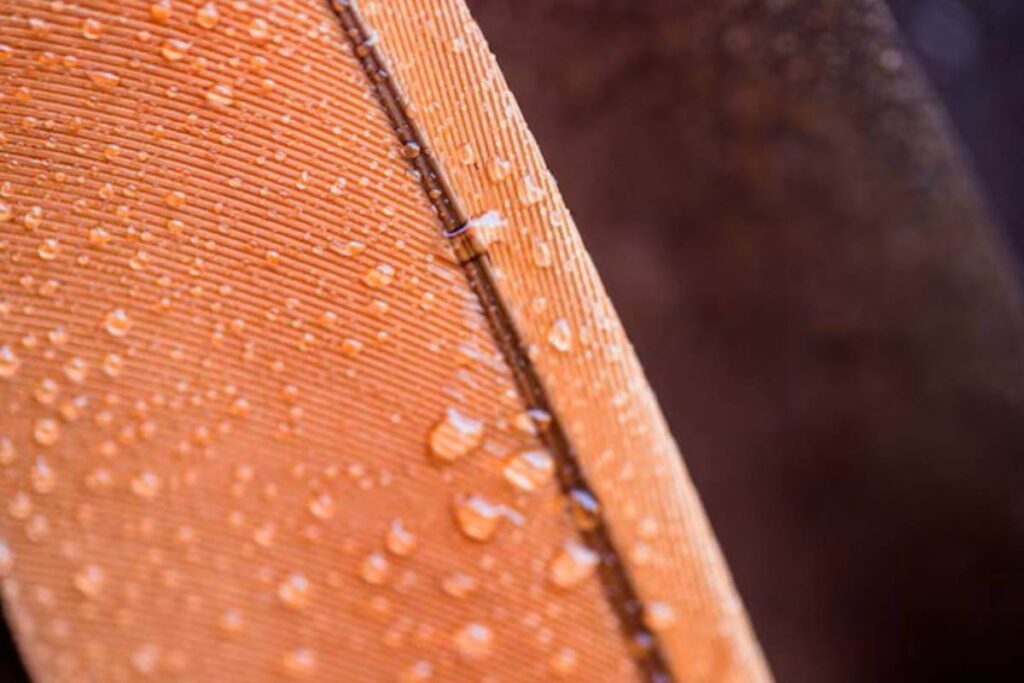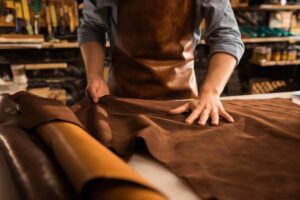Not all fabrics are built for the outdoors — but waterproof canvas fabric is.
Tough, dependable, and designed to withstand everything from a sudden downpour to years of heavy use, this material has become the go-to choice for those who need performance without compromise.
But what exactly makes waterproof canvas fabric so resilient?
In this guide, we explore everything you need to know, from how to construct waterproof canvas to the different coating methods that give it its weather-resistance.
You’ll also learn about its key characteristics, where you can use it, and why it remains one of the most trusted materials across industries.
What is Waterproof Canvas Fabric and How is it Made?
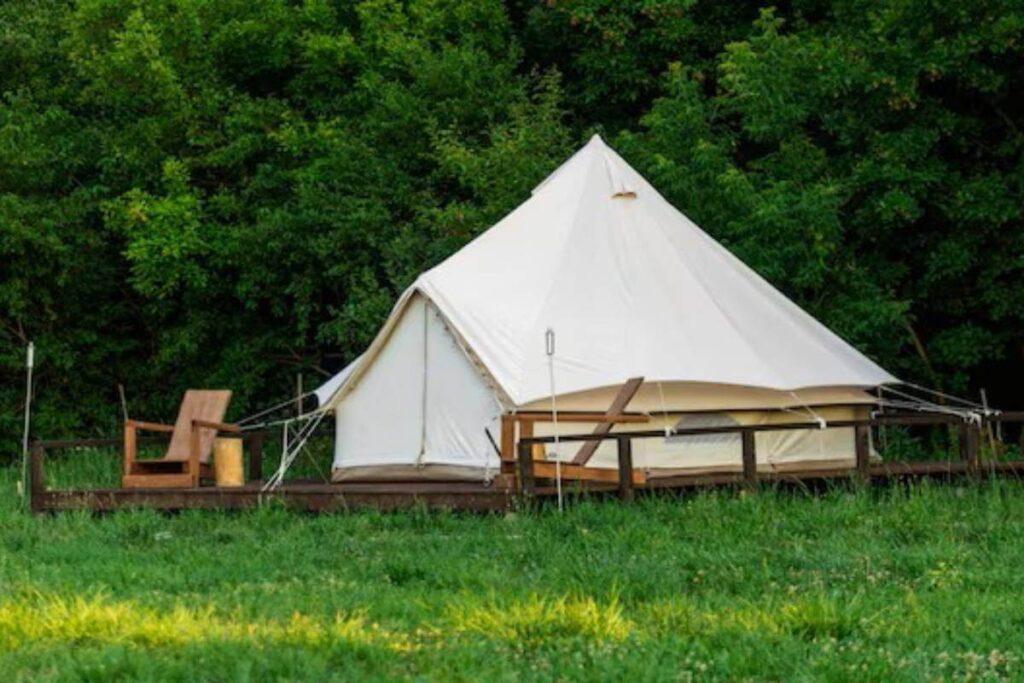
Waterproof canvas fabric is a strong, weather-resistant material designed to keep moisture out while maintaining durability and versatility.
To make it, manufacturers first select a strong base fabric, often made from synthetic fibres like polyester or nylon, or natural fibres like cotton.
Polyester and nylon are popular for their inherent resistance to water and excellent tensile strength.
Manufacturers tightly weave these synthetic fibres to limit water penetration, even before applying any coatings.
Cotton, while not naturally waterproof, is traditionally used in applications like waxed canvas for its breathability and classic aesthetic.
Various treatments are available to make the fabric fully waterproof or highly water-resistant. They include:
1. Polyurethane (PU) Coating
This is a lightweight, flexible waterproofing solution where a thin PU layer is applied to one side of the fabric.
2. Polyvinyl Chloride (PVC) Coating
PVC provides heavy-duty waterproofing and extreme durability. However, PVC-coated canvas tends to be heavier, stiffer, and less breathable than PU-coated alternatives.
3. Waxed Cotton
A traditional waterproofing method where cotton canvas is treated with paraffin or beeswax. The wax coating repels water while giving the fabric a rugged, vintage appearance.
Over time, waxed canvas develops a unique patina and can be re-waxed for continued protection.
4. Laminates and Membranes
High-performance waterproof canvas may include a bonded layer or membrane, such as Gore-Tex, PTFE, or polyurethane film.
These membranes have microscopic pores that block liquid water but allow water vapor (like sweat) to escape.
Read More: Agricultural Tarpaulins and Canvas: What Are They For?
What are the Key Characteristics of Waterproof Canvas Fabric?
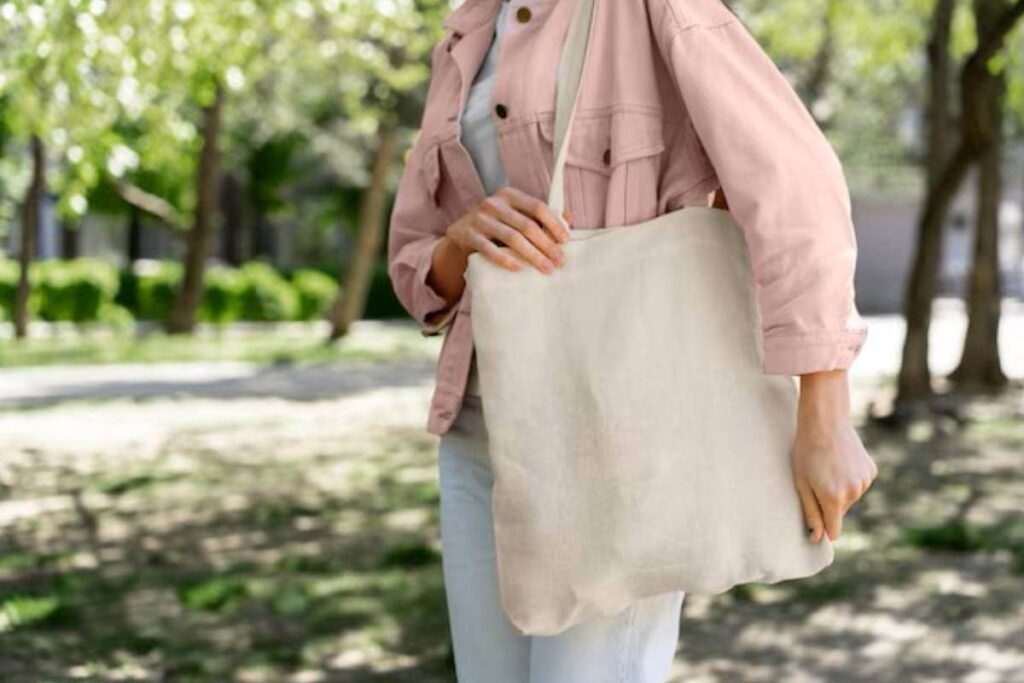
1. Water Resistance or Waterproofing
Designed to repel water, waterproof canvas fabric is treated or coated to prevent moisture from penetrating the surface, making it ideal for outdoor and wet conditions.
2. Durability
Whether used for tarpaulins, bags, or industrial covers, this fabric withstands abrasion, heavy use, and exposure to the elements without tearing or wearing down easily.
3. Weather Resistance
Besides water, waterproof canvas is often resistant to UV rays, mildew, and temperature extremes, making it suitable for year-round outdoor use.
4. Structural Stability
The fabric retains its shape and firmness even when wet, which makes it a reliable material for items that need to maintain form. Examples include like tents, canopies, and structured bags.
5. Versatility
Its balance of toughness and adaptability makes waterproof canvas suitable for a wide range of applications—from industrial covers to fashion and home décor.
6. Easy Maintenance
Most waterproof canvas fabrics are easy to clean with a damp cloth and resist staining, making them practical for both indoor and outdoor environments.
Read More: Comparing Tarpaulin vs Canvas in Malaysia: Pros & Cons
Other Common Uses of Waterproof Canvas Fabric
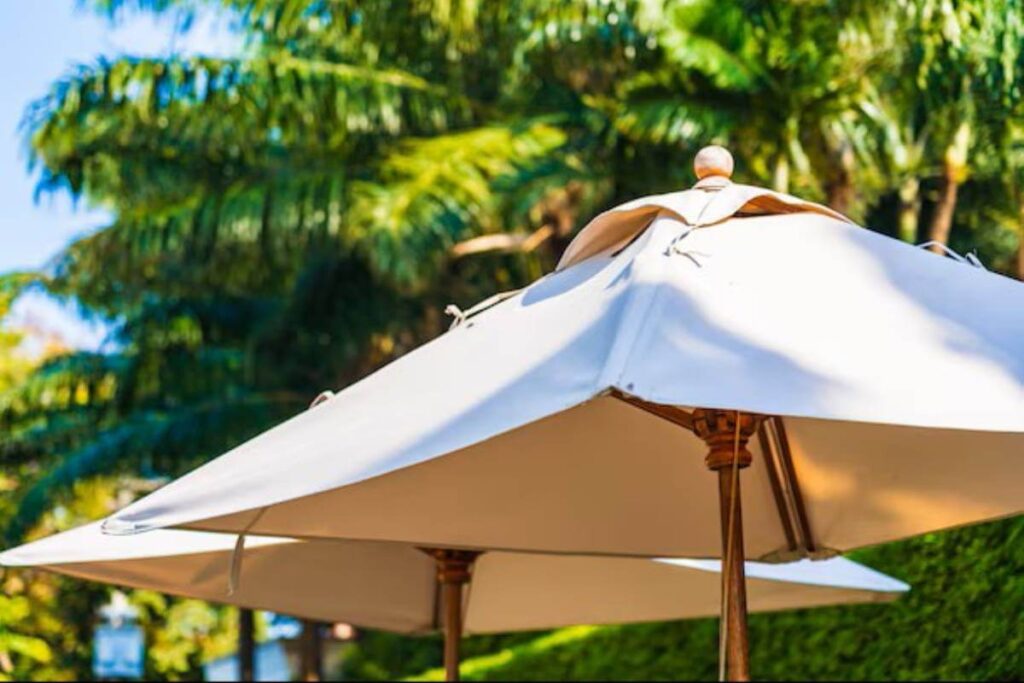
Waterproof canvas fabric is popular for its strength, durability, and resistance to water — making it a go-to material across a wide range of everyday and industrial applications.
Its versatility lies not just in its ability to repel moisture, but in how well it holds up under tough conditions, whether it’s outdoors, on the road, or in high-use environments.
1. Outdoor Covers
One of the most common uses of waterproof canvas is in outdoor covers.
From truck bed and boat covers to protective covers for cars, grills, and patio furniture, waterproof canvas fabric offers a reliable barrier against rain, UV rays, dust, and debris.
Its ability to endure constant exposure to the elements makes it ideal for long-term outdoor protection.
2. Tarpaulins
Tarpaulins made from waterproof canvas are essential in construction, agriculture, and emergency response.
These heavy-duty tarps shield equipment, building materials, and firewood from rain and dirt.
Their durability also makes them suitable for temporary shelters or ground sheets in rugged environments.
3. Awnings and Canopies
In architectural and event spaces, waterproof canvas fabric is commonly used for awnings and canopies.
It provides shade and weather protection for homes, storefronts, outdoor cafés, and pop-up events.
Its resistance to water and UV degradation ensures these installations remain effective and attractive over time.
4. Bags and Luggage
The material’s toughness and water resistance also make it perfect for bags and luggage.
It’s widely used in the production of tote bags, backpacks, duffel bags, and tool bags. These items are often exposed to rough handling or unpredictable weather.
Waterproof canvas fabric helps protect belongings while adding to the durability and structure of the bag.
5. Outdoor Gear
Waterproof canvas fabric is also trusted for making tents, camping gear, and hunting blinds. Its rugged nature holds up in unpredictable environments, offering reliable shelter and concealment.
For adventurers and outdoor workers alike, this fabric is a dependable companion in the wild.
6. Home Furnishings
Outdoor cushions, picnic blankets, tablecloths, and mattress protectors also use waterproof canvas.
These items benefit from the fabric’s water resistance, ease of cleaning, and durability, especially in homes with children, pets, or outdoor entertaining areas.
7. Industrial Applications
On a larger scale, the material is widely used in industrial applications, such as lorry covers, cargo tarps, and machine equipment covers.
These settings demand materials that can withstand constant exposure to rain, sun, and friction, requirements that waterproof canvas meets with ease.
Read More: All You Need to Know About Cotton Canvas + 8 Practical Uses
Weatherproof. Heavy-Duty. Ready for Anything.
Waterproof canvas is valued for good reason: it’s strong, weatherproof, and built to last. Whether it’s used for outdoor gear, covers, industrial tarps, or home décor, this fabric performs under pressure.
At Kintex, a leading canvas and tarpaulin supplier, we offer premium canvas and tarpaulin materials that match your needs. Explore our canvas and PE tarpaulin collections today and find the right fit for your next project.

